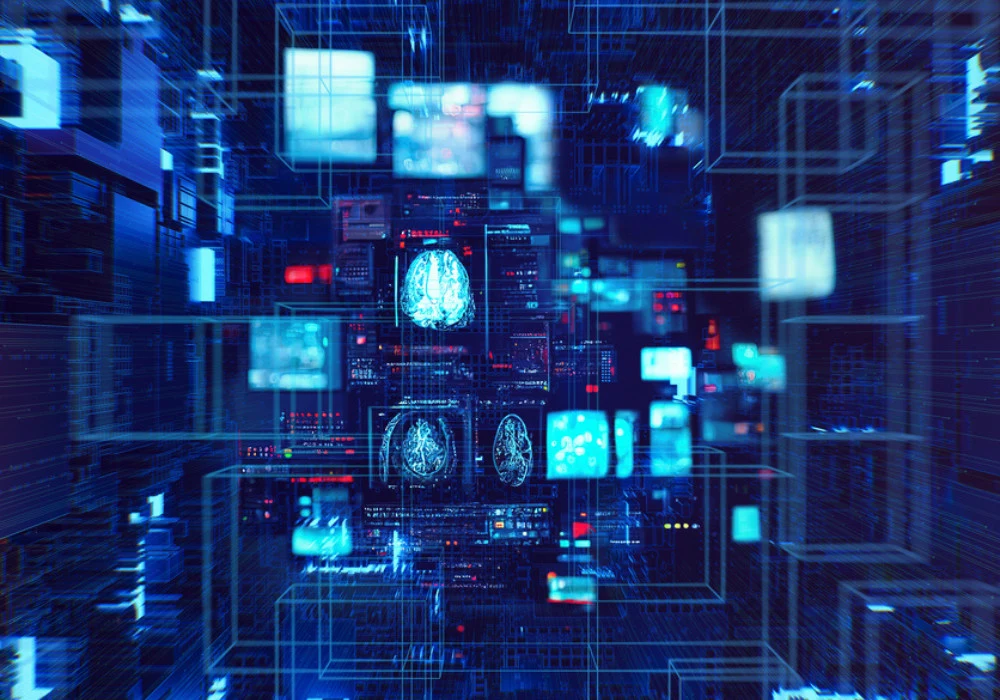The healthcare sector continues to face escalating cyber threats, driven by its reliance on digital technologies and interconnected systems. With sensitive patient data and operational continuity at stake, the sector is an attractive target for cybercriminals. By 2025, artificial intelligence (AI) is expected to become a critical component in the effort to secure healthcare environments, offering advanced capabilities for identifying vulnerabilities, mitigating risks and ensuring robust defence mechanisms. However, AI’s dual-edged nature introduces new challenges, as malicious actors increasingly use the same tools to launch more sophisticated attacks.
Proactive Threat Detection and Mitigation
AI is set to revolutionise how healthcare organisations detect and respond to cyber threats. Traditional security systems, often reliant on manual oversight and reactive responses, struggle to keep pace with the speed and complexity of modern attacks. In contrast, AI-driven platforms excel at real-time detection and mitigation, offering a proactive approach to cybersecurity.
These systems can analyse vast datasets to identify patterns and anomalies that signal potential threats, such as unusual network activity or unauthorised access attempts. By automating these processes, AI reduces the reliance on human intervention, enabling security teams to focus on more complex challenges. For example, AI tools can provide precise guidance on addressing vulnerabilities, such as suggesting tailored remediation steps for misconfigurations. Additionally, the automation of vulnerability patching will be instrumental in minimising the attack surface and improving overall resilience.
The Internet of Medical Things (IoMT) further underscores the importance of AI. With medical devices increasingly connected to networks, the risk of cyberattacks targeting these devices grows significantly. AI-powered tools enhance visibility across IoMT networks, ensuring vulnerabilities are detected and addressed before they can be exploited.
Combatting Advanced Threats
While AI offers powerful tools to boost cybersecurity, it also equips cybercriminals with advanced capabilities. Attackers are using AI to craft convincing phishing schemes, automate malware development and evade detection systems. These developments highlight the escalating arms race between defenders and attackers, necessitating constant innovation in security measures.
To counter these threats, healthcare organisations must adopt robust AI solutions beyond mere detection to enable predictive and preventative measures. Techniques such as anomaly detection and behavioural analytics are particularly effective in identifying threats before they materialise. Furthermore, adopting security frameworks like Zero Trust will be crucial. Zero Trust operates on the principle of assuming no entity—whether inside or outside the network—is trustworthy by default. This approach, combined with micro-segmentation and multi-factor authentication (MFA), significantly enhances data security.
Another growing concern is attackers' use of generative AI. Deepfake technologies and advanced language models can create highly deceptive phishing messages and social engineering attacks, which are harder for traditional defences to detect. Educating staff and employing AI tools that simulate phishing scenarios will be essential to building a culture of vigilance and preparedness.
Enhancing Governance and Compliance
Integrating AI into cybersecurity strategies demands careful governance and strict adherence to ethical principles. Mismanaged AI implementations can introduce risks such as data leakage, bias and inaccurate outcomes, which are particularly concerning in healthcare settings. To mitigate these risks, organisations must align their practices with established frameworks like the NIST AI Risk Management Framework and create clear policies for AI deployment.
Regulatory compliance will be central in shaping AI adoption in healthcare cybersecurity. With increasing scrutiny from regulatory bodies, healthcare organisations must invest in certifications such as SOC 2, HITRUST and FedRAMP. These certifications not only demonstrate a commitment to data protection but also foster trust among patients and partners. Governance frameworks that bring together healthcare providers, payers, vendors and regulators will be critical to ensuring the secure and ethical use of AI across the sector.
Additionally, transparency and accountability will be paramount as AI becomes more integrated into clinical and operational processes. Ethical AI practices, such as ensuring models are explainable and free from bias, will help mitigate the risk of unintended consequences. A unified governance approach will also help bridge gaps between IT, operational and clinical teams, fostering collaboration and improving overall security posture.
Preparing for a Resilient Future
AI is expected to be increasingly prominent in enhancing healthcare cybersecurity by 2025, but its effectiveness will depend on how well organisations adapt to its dual-edged nature. While AI can optimise operations, improve threat detection and enable faster remediation, its misuse by cybercriminals poses significant risks. The stakes in healthcare are uniquely high, with patient safety, data protection and operational integrity all on the line.
Healthcare organisations must remain vigilant, continuously evolving their security strategies to counter emerging threats. This includes fostering a culture of cybersecurity awareness through regular training and simulation exercises, investing in cutting-edge technologies and maintaining a strong governance framework. By prioritising collaboration and innovation, the healthcare sector can use the full potential of AI to create a more secure and resilient future.
AI holds immense promise for addressing the cybersecurity challenges facing healthcare in 2025. From real-time threat detection to streamlined vulnerability management, it offers transformative capabilities that can strengthen defences and protect sensitive data. However, the rise of AI-driven attacks underscores the need for a balanced approach that combines advanced technology with robust governance, ethical practices and human oversight. By leveraging AI responsibly and fostering sector-wide collaboration, healthcare organisations can build trust, enhance resilience and ensure patient safety in an increasingly digital landscape.
Source: HealthIT Answers
Image Credit: iStock










